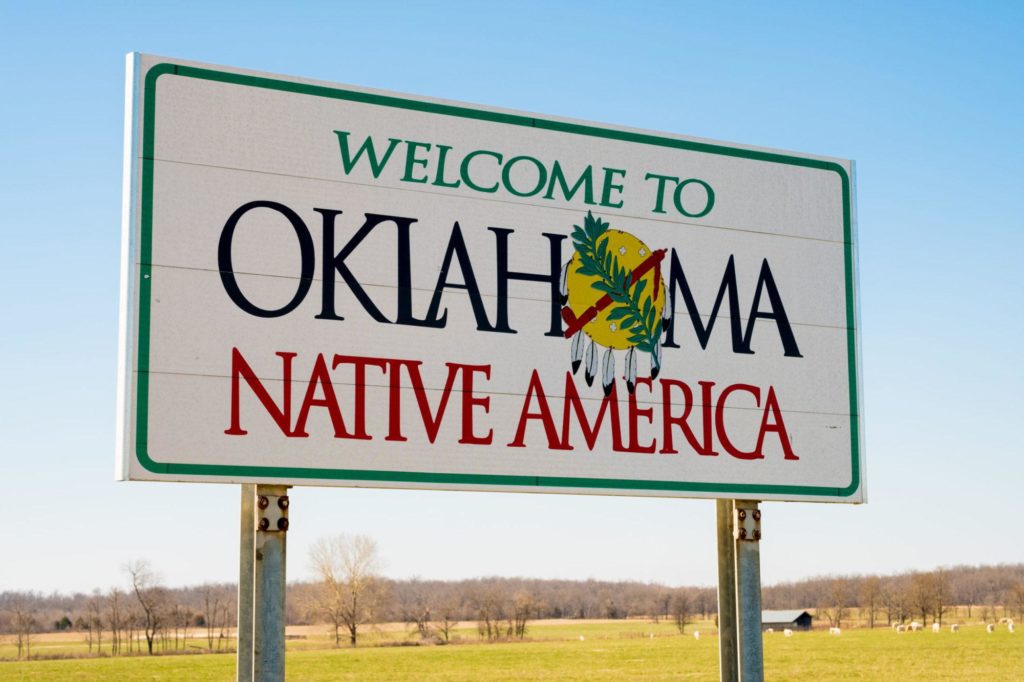Tribal leaders point to Las Vegas Sands owners’ purchase of NBA’s Dallas Mavericks as threat – CDC Gaming Reports

Tribal gaming leaders in Oklahoma and across the country on Wednesday called on Gov. Kevin Stitt to support tribal-led sports betting as the state faces falling oil prices and potential future competition from Texas.
Their calls took place during the weekly “The New Normal” webcast hosted by Victor Rocha, President of the Indian Gaming Association Conference, and Jason Giles, Executive Director of the Indian Gaming Association. They interviewed Matthew Morgan, president of the Oklahoma Indian Gaming Association.
The webinar addressed the situation with Miriam Adelson, the widow of casino magnate Sheldon Adelson, whose family controls Las Vegas Sands; Adelson agreed to buy a majority stake in the Dallas Mavericks basketball team for $3.5 billion. LVS announced Tuesday that Adelson was selling $2 billion worth of stock to buy a sports team.
LVS has spent millions lobbying Texas to legalize gambling in the state, but so far to no avail. Current Mavericks owner Mark Cuban, who will retain control of the team, wants to build a new arena surrounded by an entertainment district that includes a casino.
Stitt, a member of the Cherokee Nation, recently proposed a plan to introduce sports betting in Oklahoma, but experts and stakeholders have raised significant doubts about its feasibility and legality, Rocha said. This controversial plan sparked a wave of controversy and speculation.
Morgan said Stitt did not share the plan with tribes and lawmakers when he announced it. Oklahoma will tax retail sports betting at tribal casinos at 15%, while the state will issue mobile licenses taxed at 20%, with a $500,000 fee for a license, without clarifying who will be eligible for them.
“It surprised everyone, but once everyone read it en masse, everyone rejected it very quickly,” Morgan said. “It’s DOA.”
Giles said the proposed tax rates don’t make any sense, as if they were “pulled out of nothing.” Oklahoma’s gambling industry is strong and revenue numbers continue to improve, as national sports betting companies like DraftKings improve their income.
“It’s an insatiable market, which is why this kind of thing is concerning,” Giles said. “It’s troubling in California (where non-tribal entities are trying to get a piece of sports betting in the future) and troubling in other places that don’t have sports betting yet, because money can be made, even though the margins are low and small.”
Giles said Oklahoma relies on natural resources and high gas prices have helped the state over the past two years, but the price of oil is trending down, and if it drops to $50 a barrel, the state begins to struggle for more revenue. .
“It’s time to think about the future for once, not rely on the boom-and-bust cycle of high oil and energy prices, reach a deal, and start diversifying the economy,” Giles said.
Giles also pointed to pressure from neighboring states that offer sports betting, such as Kansas and Arkansas, and the potential for other states in the future, such as Missouri and Texas.
The pressures of regional competition first emerged in 2014, which Oklahoma countered by introducing roulette and craps, Morgan said. Players were leaving the state to play those games.
“We’re starting to see it more in the sports betting arena. Kansas, Arkansas and New Mexico have it,” Morgan said. “Texas had a (sports betting) bill that went further than ever before and we got a one-year deferment with Texas, where the Legislative Council every two years. You still see the investments people make in Texas, thinking something is going to move. The Las Vegas Sands ownership group will acquire Mark Cuban for the Mavericks. This tells me that people think there is an opportunity there.
“Oklahoma still has a chance to be the first mover in Texas,” Morgan said. “About 37 to 38 states now have sports betting and we sat down with the state for the first time in 2016 (before the Supreme Court overturned the federal ban on sports betting in 2018). We will not do anything that would undermine the Charter and we will not do anything against our interest.” “Economic. We are the ones taking all the risks and making all the money here. This has to work for us as well and we have to be at the table.”
Morgan said this is a good time for Gov. Stitt to review the relationship and added that the tribes remain optimistic about moving statehood forward. He said the governor continues to focus on how to offer sports betting, but that issue was settled in 2004 when the Oklahoma Nationals agreed to operate a combined model.
“Our members would like to focus on what makes economic sense on both sides of the table and can we move forward,” Morgan said. “In 2004, when the state offered our compact, it was expected that $71 million a year in fees would be shared with the state. We exceeded that by a year and a half in our gaming compact. Last year, we broke the $200 million mark and provided more Of the state’s $2.2 billion in exclusivity fees, and that doesn’t include the other types of partnerships and philanthropic activities that tribes engage in. I don’t think you’ll see a lot of success in rural Oklahoma without tribes. A lot of that is due to employment in our gaming industry, but the growth that’s happening About those facilities.
Meanwhile, gambling in Oklahoma is strong, with tribes investing in their own casino properties, Morgan said. The Osage Nation has opened two new properties in the past two months and properties are being remodeled across the state. “Our industry is confident that we will continue to see an upward trend.”
Giles said he does not understand the pessimism about the US economy, where people complain about inflation and then spend money. Thanksgiving weekend was one of the highest travel weekends in history.
“Commodity prices won’t go down until people stop spending money,” Giles said. “Quite simple. Times are good now and this is a time when you want to look at offering new rides and venues if the governor is serious about respecting tribal sovereignty and respecting covenants. This outlook is really good for next year.”







